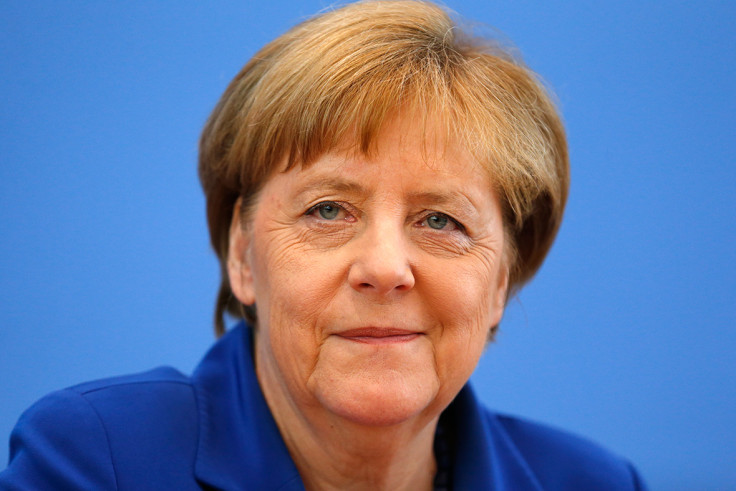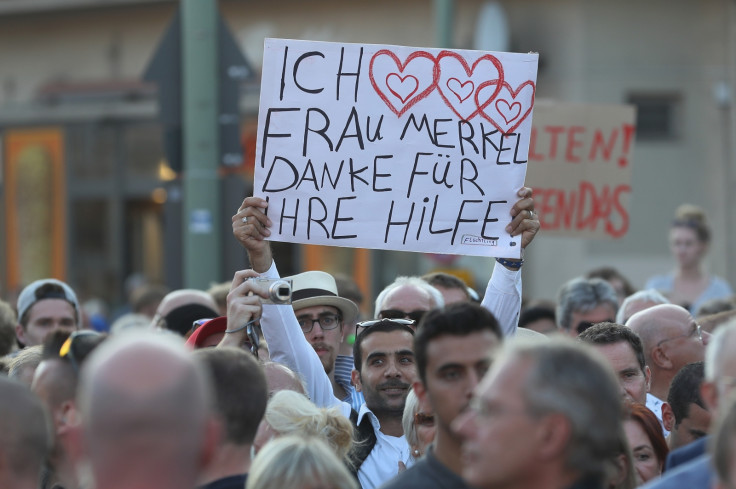Despite losses in Berlin most Germans still agree with Angela Merkel about refugees
German electorate is becoming more divided, but the AfD did not do quite as well as some expected.

Berlin, the day after: Another election, another defeat for Chancellor Angela Merkel's Christian Democratic Party (CDU). Or so it seems. The results are certainly a blow to the CDU in Germany's capital.
But they also show something else: the German electorate is deeply divided politically and is becoming more so, as no party received significantly more than 20% of the votes. The right-wing Alternative for Germany party (AfD) did not do quite as well as some expected. What does this mean?
There is hardly a ringing endorsement of any party. Instead, there is a sense that the interests of the electorate have become more differentiated. As is clear from previous regional elections, CDU and the Social Democratic Party of Germany (SPD) are no longer dominating party politics in the way they did during the Cold War.
Michael Müller, the Social Democrats' Berlin leader, will not find himself in an especially comfortable position as the likely new head of government in a coalition with the Left and Green Parties: the SPD only polled 21.6% of the vote; the CDU came second with 17.6%, the Left third (15.6%), the Greens fourth (15.2%) and the AfD only fifth with 14.2% of the vote. While the rise of the AfD is certainly remarkable, so is the resurgence of the liberal Free Democratic Party (FDP) (up 4.9% to 6.7%).
Overall, then, this election can hardly be seen as a plebiscite against Merkel's policies towards refugees. With the exception of the AfD, all other parties running in the Berlin election fundamentally supported her plea for openness and pluralism.
This election does not signal 'Merkeldämmerung', at least not yet. For one, the city state of Berlin has always been a bit of an outlier in terms of German politics.
More generally, the general climate looks favourable. The economy is strong, and many outside Germany may well be scratching their heads when hearing about a crisis in Germany: unemployment is down and the government has just announced tax reductions. Despite the recent incidents, the influx of more than a million refugees does not appear to have led to a crime wave or to a significant increase in the threat of Islamic terrorism.
In federal polls, Merkel's CDU remains comfortably ahead of the Social Democrats. Her opponent, the SPD vice-chancellor Sigmar Gabriel, trails significantly behind her in personal likeability and perception of competence. No serious political rival has emerged inside her party. The Bavarian sister party CSU, despite recent bickering, is likely to close ranks before the federal elections, not least because the influx of refugees appears to have subsided for the time being.

Moreover, the model that won the election for the SPD in Berlin – namely a left coalition including SPD, the Left Party and the Greens – is unlikely to fare well in the federal elections next year: the CDU will play up their character as a broad middle-class coalition, and the spectre of a federal Left coalition may well frighten AfD voters sufficiently enough to cast their vote for more traditional conservatism.
Merkel's form of a pragmatic conservatism, with a strong belief in economic liberalism and political pluralism, is in a very powerful position here: she would be able to form coalitions with the Social Democrats, the Liberals and the Greens.
Looking at Germany from the outside, it is remarkable that the fundamental political discussions are not about sovereignty, as for example the debates on Scottish independence and Brexit in the UK, or on Islam in France have been.
Rather, all political parties – with the exception of the AfD – are debating ways in which to govern in the context of a globalised economy beyond traditional conceptions of national sovereignty. This is one of the reasons why the TTIP and CETA trade agreements have played such a prominent role in domestic political discussions. And that is also one of the reasons why the Green Party has been able to position itself as the liberal party of the 21st century: strongly in favour of self-fulfilment, but paired with environmental responsibility, for relatively affluent urban voters.
The talk about the crisis of Merkel's leadership – or even Germany's politics as a whole – is less about Merkel. Rather, it is the white noise that has accompanied a fundamental transition in German politics. This transition is from a discussion focused on and around national sovereignty to one that grapples with the challenges of government in an era of globalisation in the context of a pluralist democracy. Paradoxically, Merkel's leadership and policies have played a significant role in effecting this shift.
Professor Holger Nehring is chair in contemporary European history at the University of Stirling
© Copyright IBTimes 2025. All rights reserved.






















